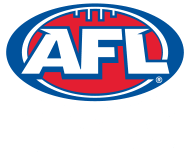AFL Queensland are committed to the ongoing education of our community football coaches.
A key strategy to provide ongoing support is through the promotion and education of club coaching coordinators at all levels within Australian Football.
Why coaching coordinators?
Coaches are key influencers in developing and maintaining a positive club culture. They also have a significant impact on the lives of individuals within the club especially the players.
Presently, coaches are accredited through a sound educational structure within the AFL’s National Coaching Accreditation Scheme (NCAS), which is recognised by the Australian Sports Commission (ASC).
AFL Queensland believes there is a growing need to assist accredited coaches and support their development in a variety of aspects of the multi-faceted role they play in the club or school environment.
A club coaching coordinator could support and oversee the growth and development of individual coaches and enhance the overall effectiveness of the coach at club level.
Success of a club coaching coordinator position can only be measured by the roles and responsibilities that are afforded to the coach in a particular coaching environment – these may be varied and all-encompassing.
Each club or school that appoints a club coaching coordinator will clearly define the role that they expect of the individual that they appoint.
ROLES AND RESPONSIBILITIES
The development of the specific role and responsibilities of the club coaching coordinator will depend on the specific needs of individual clubs and schools; however the following roles and responsibilities are likely to be core:
- Develop a positive coaching culture
- Assist and support the on-going growth and development of coaches
- To provide necessary and up to date information on current coaching trends, practices and courses to all coaches
- Support coaches so that players will receive the best practice approach to training, skill development and match day environment
- Assist clubs and schools to develop processes whereby they can recruit and retain coaches
- Assist coaches to develop processes whereby clubs can recruit, develop and retain players.
- Ensure all coaches are recognized for their efforts and their commitment to quality coaching practices.
- Assist in the development of a club and school Australian Football development curriculum.
The following roles and responsibilities are also considered important and part of the guidelines for the role of a
CLUB COACHING COORDINATOR:
- Act as a mentor to club coaches as requested
- Chair the selection panel for club coaches
- Conduct coaching assessments and evaluations of coaches
- Ensure coaches uphold the AFL Coaches Code of Conduct
- Chair club or school coach’s meetings
- Attend district or zone club coaching coordinator meetings
Broadly, the club coaching coordinator is essentially responsible for all aspects of the development and management of the club’s or school’s coaching program and personnel and also for the promotion of the value of quality coaching within the club or school program.
QUALITIES OF A CLUB COACHING COORDINATOR:
- Well-developed communication skills especially as an effective listener.
- Good questioning skills
- Empathy
- Well organized
- Passion for assisting coaches improve
- Enthusiastic positive encourager
PREREQUISITES FOR APPOINTMENT AS A CLUB COACHING COORDINATOR:
- Hold a current AFL Level 2 Coach Accreditation (ideally)
- Completed the Club Coaching Coordinator Course
- Not currently coaching a team (preferable)
The AFL highly recommends this initiative to all clubs and schools who value the continued improvement in the
quality of coaching and the subsequent enhancement of the quality of the sporting experience for all participants.
For more information and resources please contact your AFL Queensland Coaching Development and Education Lead Jack Barry. Email: jack.barry@afl.com.au




























